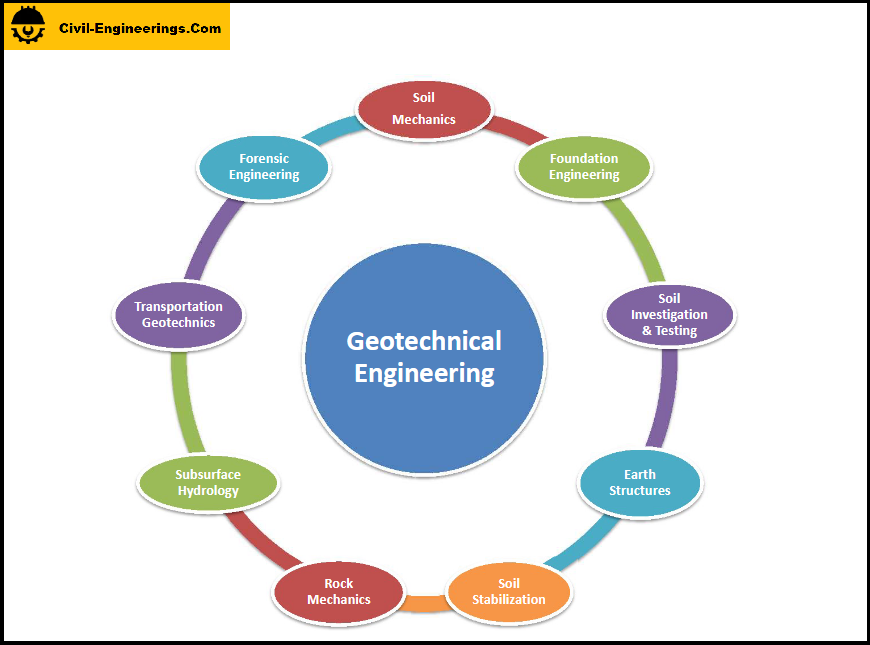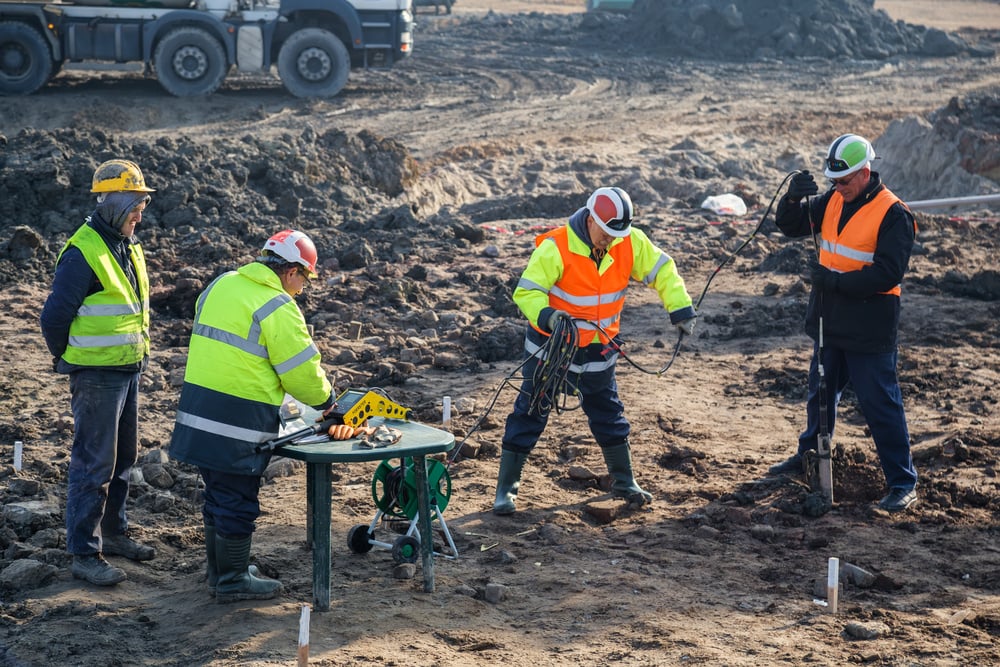Specialized Geotechnical Engineering Solutions Can Be Fun For Everyone
Table of ContentsSpecialized Geotechnical Engineering Solutions - The FactsSome Of Specialized Geotechnical Engineering SolutionsSpecialized Geotechnical Engineering Solutions Fundamentals ExplainedUnknown Facts About Specialized Geotechnical Engineering Solutions
They carry out site investigations, collect samples, carry out lab tests, and examine information to review the suitability of the ground for building tasks. Based upon their searchings for, geotechnical designers offer referrals for foundation design, incline security, maintaining frameworks, and reduction of geotechnical dangers. They work together with various other specialists, such as designers, structural designers, and building and construction teams, to guarantee that geotechnical factors to consider are integrated into the overall project layout and execution.
Foundation Layout: Geotechnical designers play a vital duty in designing foundations that can safely support the desired framework. They evaluate the soil conditions and tons demands to establish the suitable structure type, such as shallow structures (e.g., footings), deep structures (e.g., piles), or specialized methods like soil enhancement. They think about factors such as negotiation limitations, bearing capacity, and soil-structure communication to create optimal foundation designs.
The Main Principles Of Specialized Geotechnical Engineering Solutions
Right here are some sorts of geotechnical engineers: Foundation Engineer: Structure engineers focus on creating and examining structures for structures - Specialized Geotechnical Engineering Solutions. They examine the soil conditions, tons requirements, and website features to determine one of the most suitable foundation kind and layout, such as shallow foundations, deep structures, or specialized methods like stack foundations
They execute field screening, gather samples, and assess the accumulated information to characterize the soil properties, geologic formations, and groundwater conditions at a site. Geotechnical Instrumentation Designer: Geotechnical instrumentation designers concentrate on monitoring and gauging the actions of soil, rock, and structures. They set up and maintain instrumentation systems that keep an eye on variables such as soil settlement, groundwater degrees, incline activities, and architectural displacements to assess performance and provide very early cautions of prospective concerns.
In the workplace setting, geotechnical engineers make use of specialized software tools to execute computations, produce styles, and examine data. Specialized Geotechnical Engineering Solutions. They prepare records, review task specifications, communicate with customers and employee, and coordinate task tasks. The workplace setting gives a conducive atmosphere for study, analysis, and partnership with various other experts included in the job
They often go to job websites to conduct site examinations, assess geotechnical conditions, and collect data for evaluation. These brows through involve taking a trip to different areas, occasionally in remote or difficult surfaces. Geotechnical engineers might execute dirt sampling, conduct examinations, and display building and construction activities to make sure that the geotechnical facets of the job are being implemented properly.
Specialized Geotechnical Engineering Solutions Can Be Fun For Anyone
Geotechnical engineers additionally work in specialized geotechnical laboratories. In these facilities, they conduct experiments, execute tests on soil and rock examples, and analyze the design residential or commercial properties of the products. Geotechnical lab engineers work thoroughly in these atmospheres, taking care of screening tools, operating tools, and recording information. They team up with other research laboratory personnel to guarantee precise and trusted screening outcomes.
Retaining Wall surfaces: Producing wall surfaces that hold back dirt to avoid landslides and give security on sloped surfaces. Embankments and Earthworks: Designing embankments for roads, trains, and dams to ensure they remain secure under stress and anxiety. The mining industry depends greatly on geotechnical engineering to make certain the safety and security and longevity of its operations.
With this in mind, we have actually designed our program to prepare trainees for success. The Geotechnical Design program at the College of Delaware uses opportunities for sophisticated research study and my link research in: Soil and rock auto mechanics Soil-structure interaction Integral modeling Computational geomechanics Foundation and planet structures design Ground improvement Slope stability and landslide stabilization Liquefaction of soils and quake engineering Research laboratory characterization of geomaterials and soil support Environmental geotechnics Offered the solid requirement for renovation to our nation's infrastructurethe American Society of Civil Engineers provided the U.S.
Geotechnical design is a branch of civil engineering; nonetheless, it includes using scientific methods and concepts to collect and interpret the physical residential or commercial properties of the ground. Geotechnical designers are included in all stages of the layout of frameworks, from concept to building. Their work is essential in the style and preparation procedure as they evaluate the integrity of dirt, clay, silt, sand, and rock, prior to building commencing.
Specialized Geotechnical Engineering Solutions - An Overview
This is followed by a ground examination based upon the findings of the workdesk study and includes trial matching and tasting to uncover any kind of possible concerns. Geotechnical designers function within multidisciplinary teams, sustained by intermediate and jr engineers along with by CAD professionals. As an elderly geotechnical engineer on a hydro plant task, jobs may consist of taking part in technical reviews (e.g., peer reviews), tailings clog examinations, dam safety evaluations, and other research studies connected to the design and construction of mine waste centers.
While some experts are experts exclusively in geotechnics, others may work under titles like engineering geologist or ground designer within similar capacities. As a geotechnical designer, you'll need to: develop and maintain relationships with customers and various other professionals included in click now the site, throughout each projectmaintain safety and security requirements on website bear in mind cost effects when you make recommendationsstudy geological maps and aerial photographs from a series of sources and from different time periodsexamine construction prepares to see exactly how viable they are based upon your understanding of the siteinvestigate threats or geological threats for the sitesearch for eco sensitive attributes, such as garbage dump start to develop factual and expository ground modelsplan field investigationsdrill and evaluate examples of bedrock, soil, groundwater and additional products monitor other professionals on sitesolve technological concerns as they develop, such as unexpected frameworks at drill sitesmonitor conditions during and after building and construction my blog to make sure frameworks are secure in the short and lengthy termadd data gathered on site to your first researchcreate geotechnical calculations, drawings, and two or three-dimensional computer versions interpreting the datamake referrals about the suggested use the website.
There are great deals of chances to satisfy new people, as you'll collaborate with an array of professionals at every site. The job can be difficult as you may be liable for the security of others while on site. There is additionally a high level of economic responsibility, as the referrals you make can have serious cost effects.
